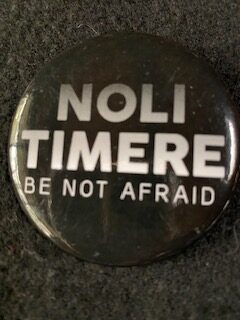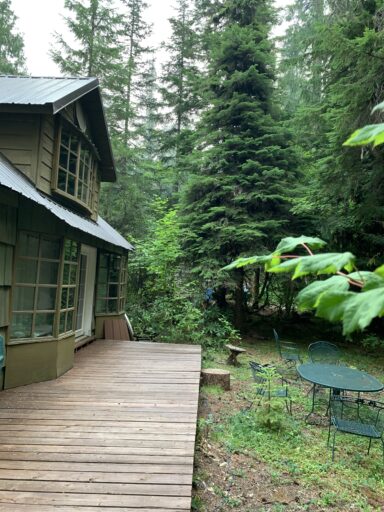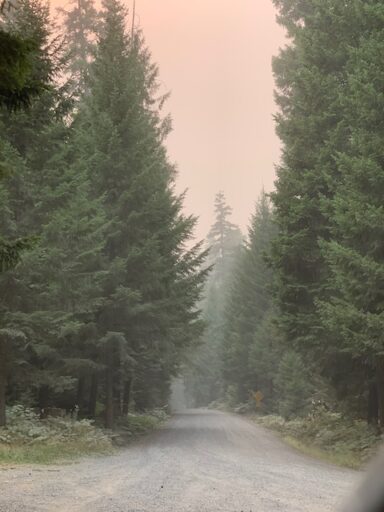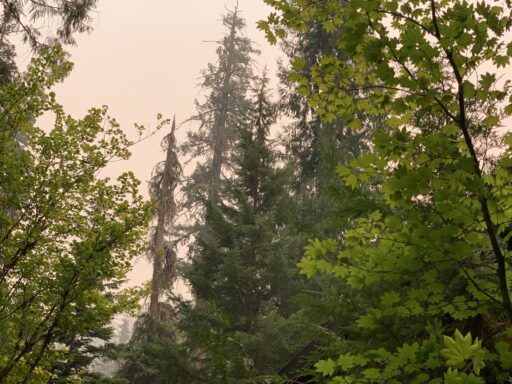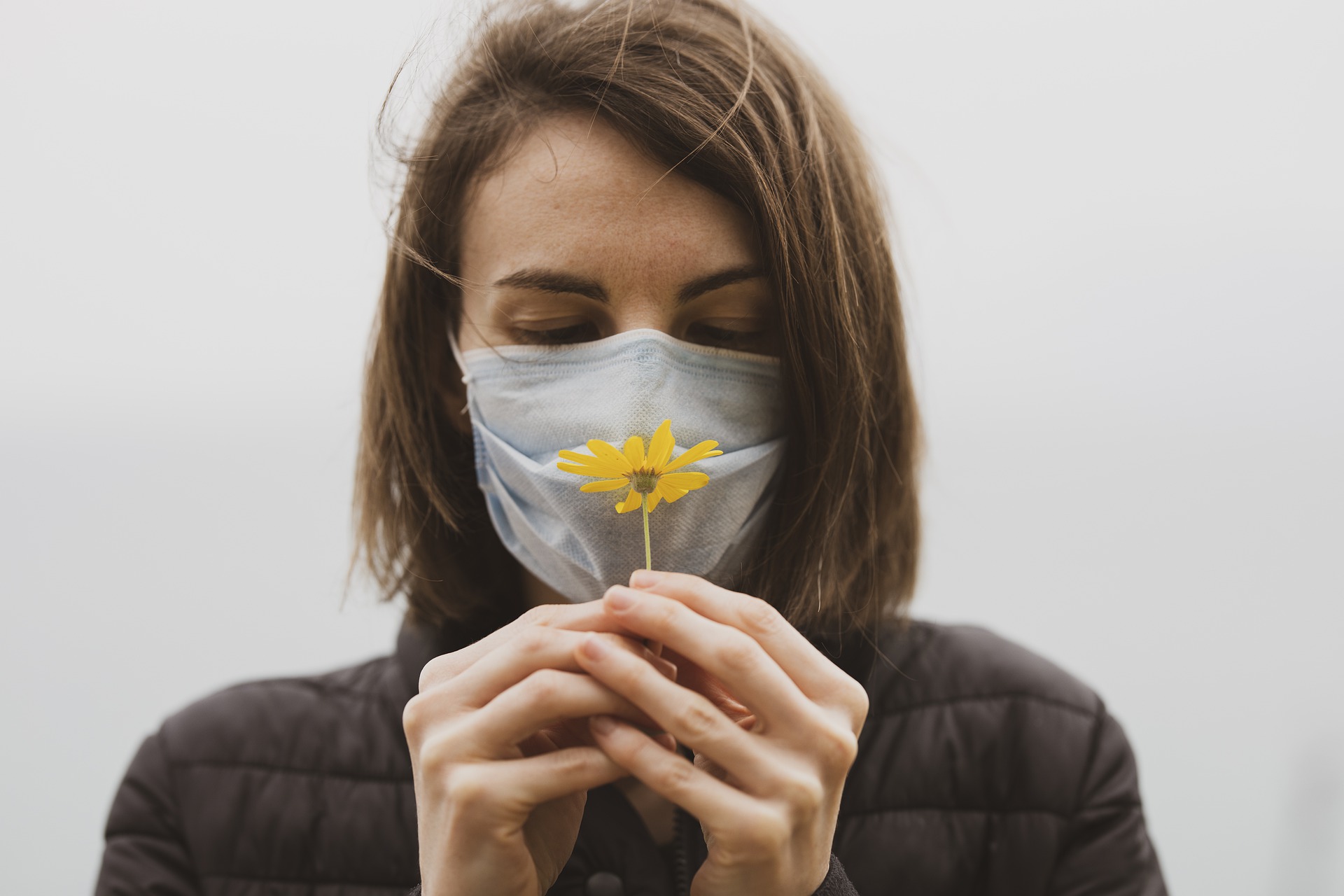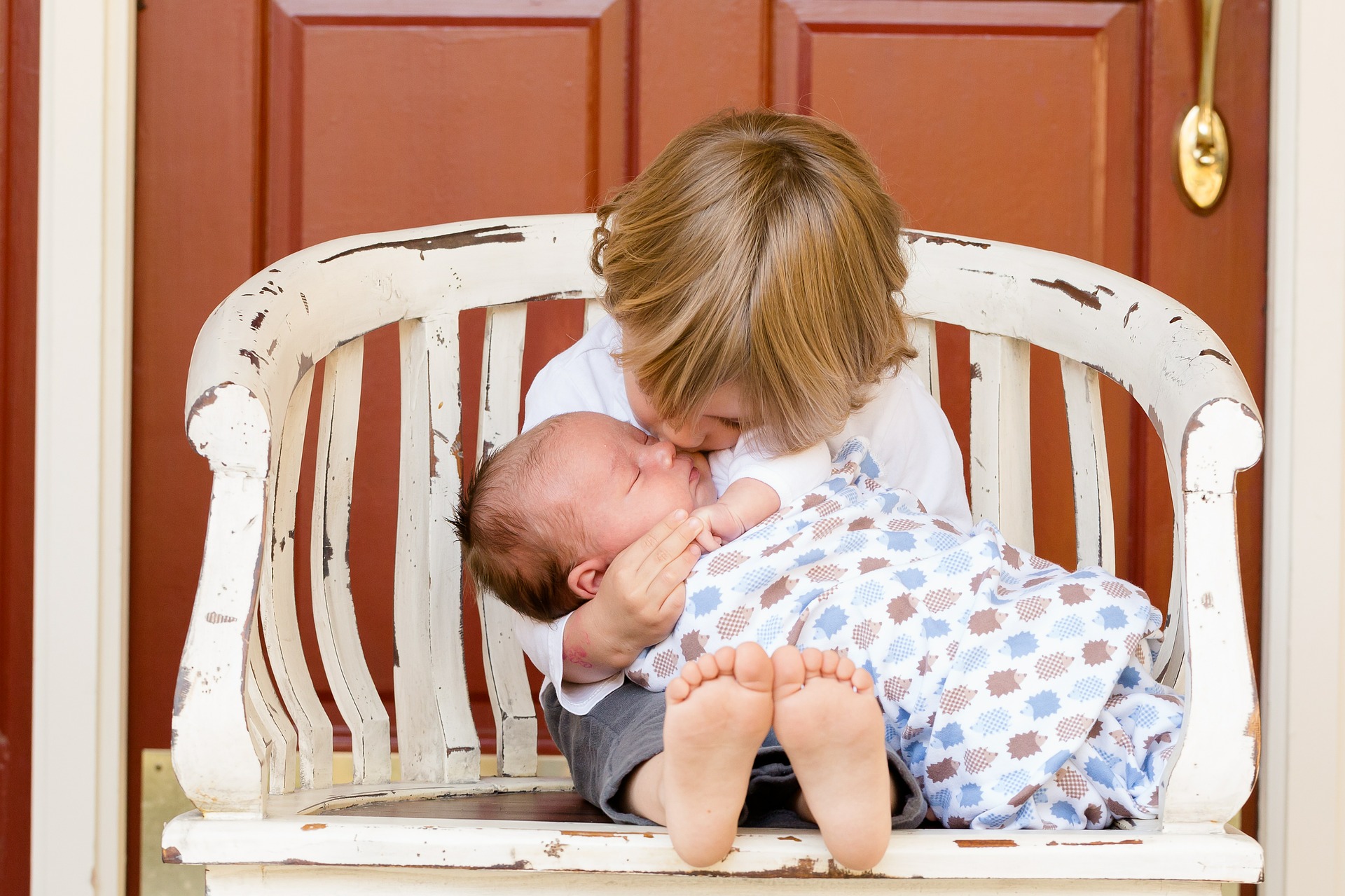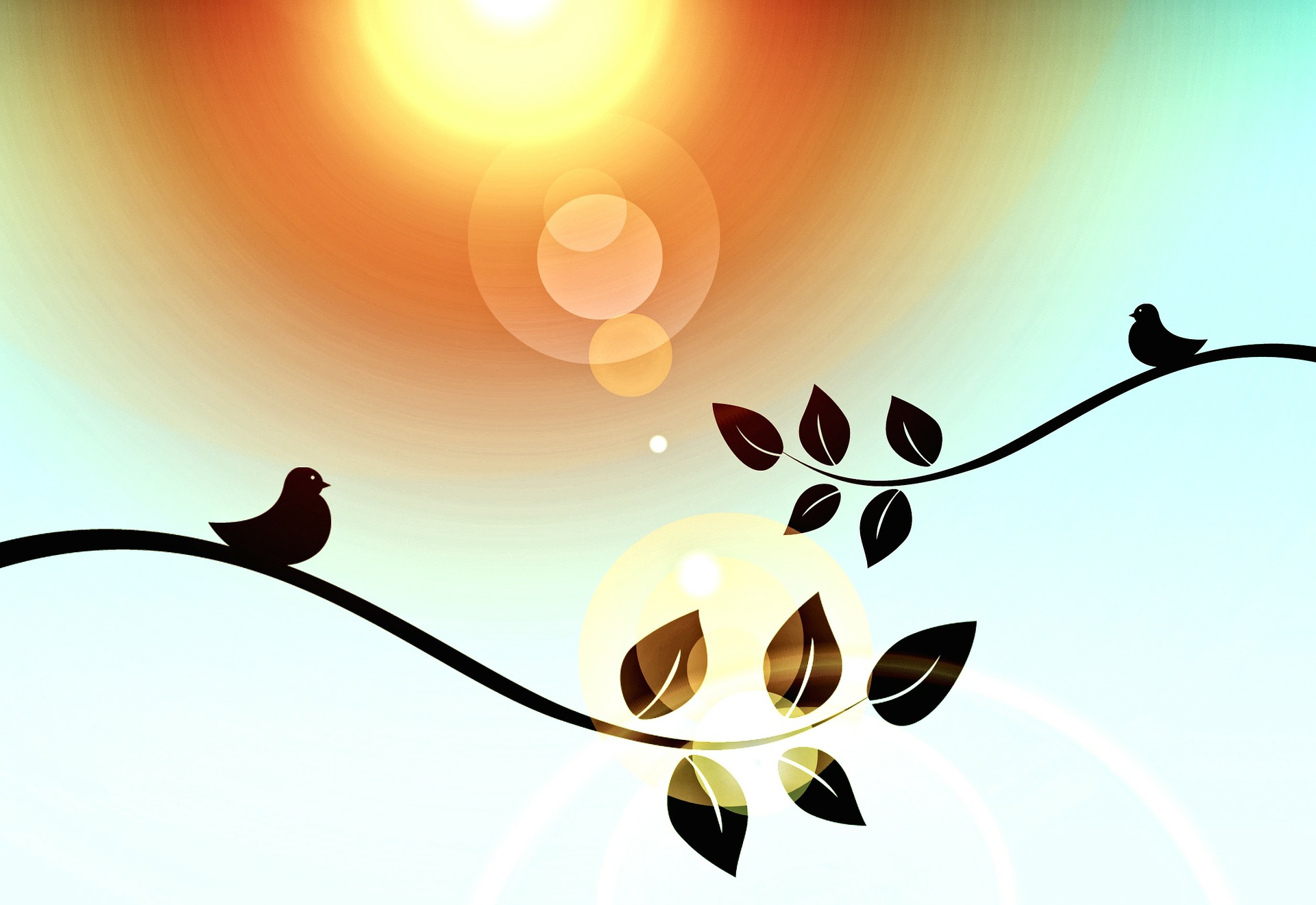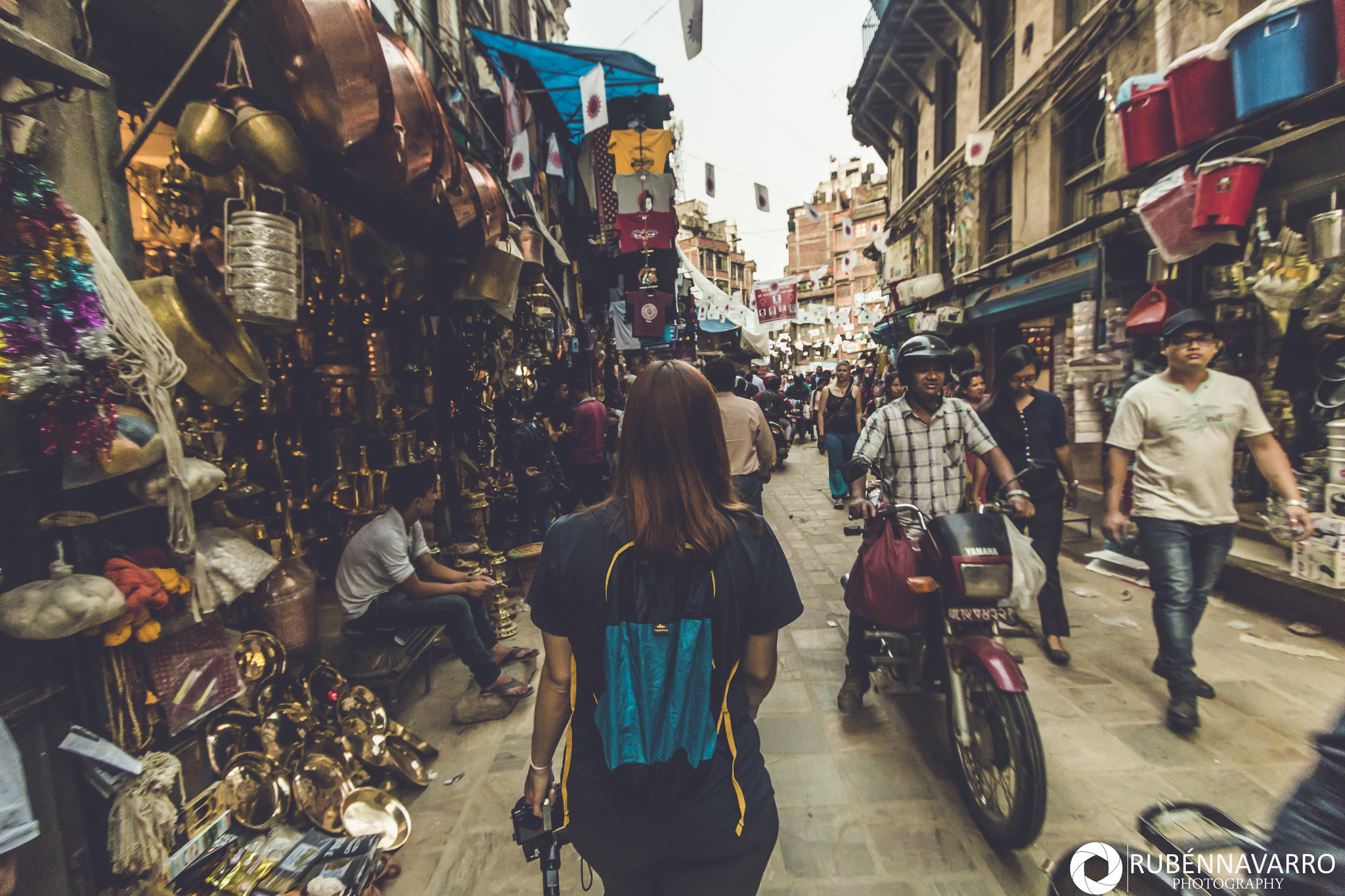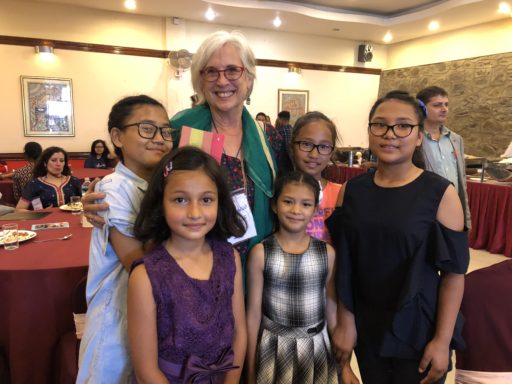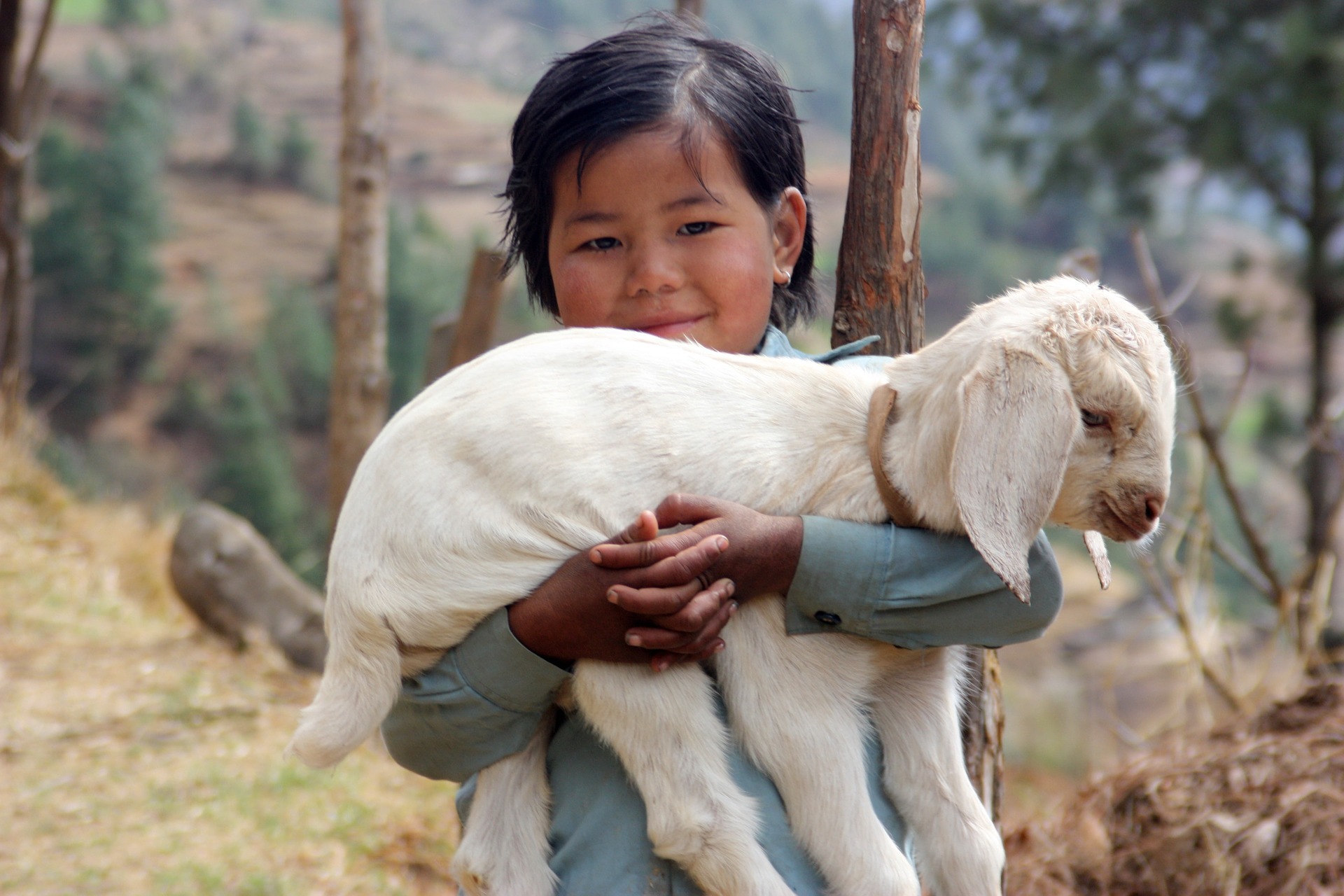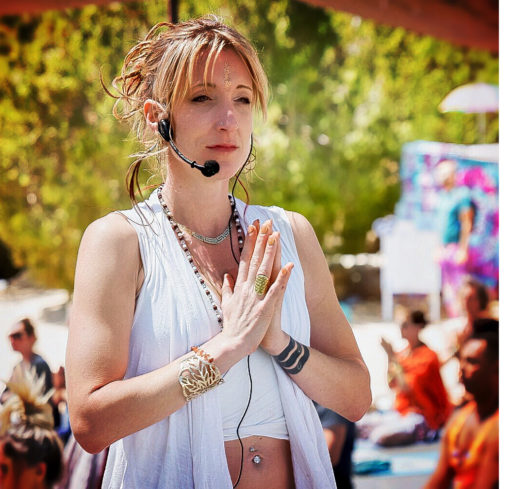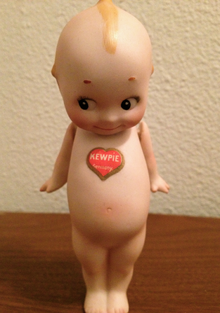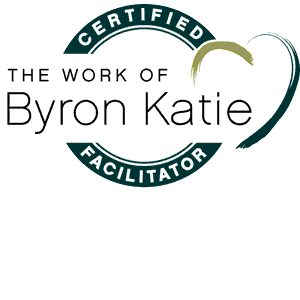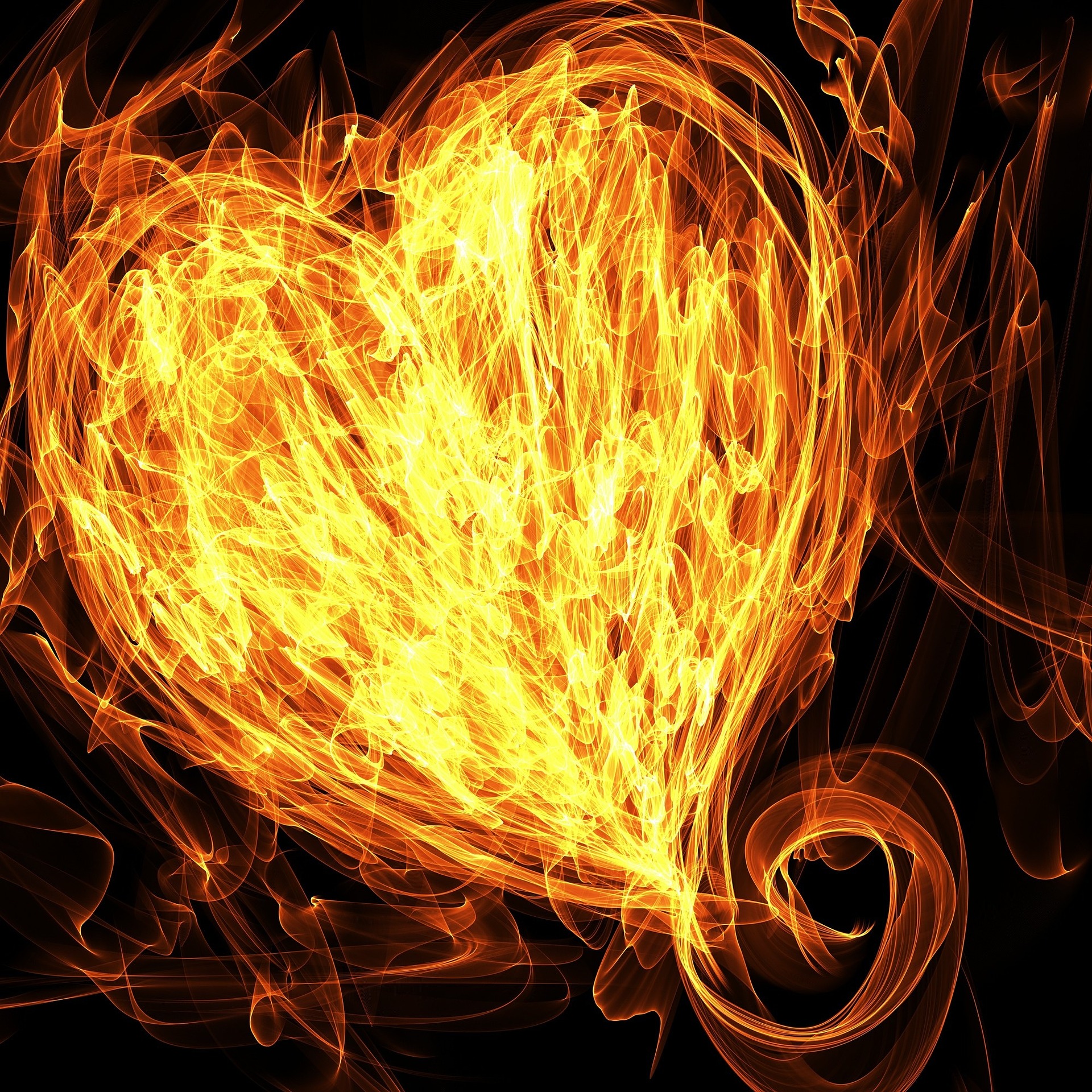
Love is Letting Go of Fear. I read this book over and over while nursing my daughter Johanna in 1982. Home on maternity leave, I made it a focus by asking myself every so often throughout the day when I was operating from love or from fear. (I’ve often thought this may have been my worst parenting advice ever for reasons involving safety. She was the kid who went down the slide face first while I stood by, no doubt meditating on fear and love.)
Today, adult Johanna continues to throw herself into everything she does. She has been deeply drawn to the yoga of Bhakti, the path of devotional love. How wild is that? I’m getting my comeuppance, shall we say.
I’m wearing my Nolo Timeri (Be Not Afraid) button for many reasons these days, and she’s one of them. Johanna has made her living for the last five years singing and teaching yoga at studios and churches and festivals throughout the country. I’m guessing you know what this means in COVID times. I’m still coaching myself about love and fear and reciting Nolo Timeri.
What does my “fearless” offspring do during quarantine? She finds a mantra online from some teacher in India, chants it daily, and adds her own twists. She asks all of her friends and colleagues to join her in a global mantra for healing. (Did I mention that she thinks very big?) She spends the summer, with the help of my bonus daughter Lyris, setting up an online studio and editing the videos sent in from dozens of Bhakti musicians. She’s hosting a new channel, One Heart TV, to unveil the new music video. And all profits will go to a foundation I love focused on helping children in Nepal, like my other bonus daughter Priti, who is still under lockdown there.
And Johanna is doing all this and going through with the formal release during an unprecedented conflagration of forests all around. Maybe this is what love looks like when you’re not afraid.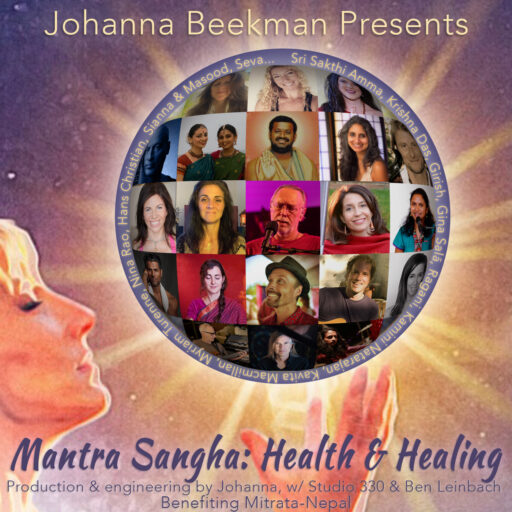
What I do know is that watching the video and chanting this mantra along with Noli Timere bring me a sense of equanimity during a dark and smoky time.
This Tuesday, Sept. 15th at 5pm PST, you can join in the live premiere of this new music video, “Mantra Sangha: Health & Healing,” on Facebook and YouTube, or join the Zoom call to participate in the artist meet and greet. All the details are here.
